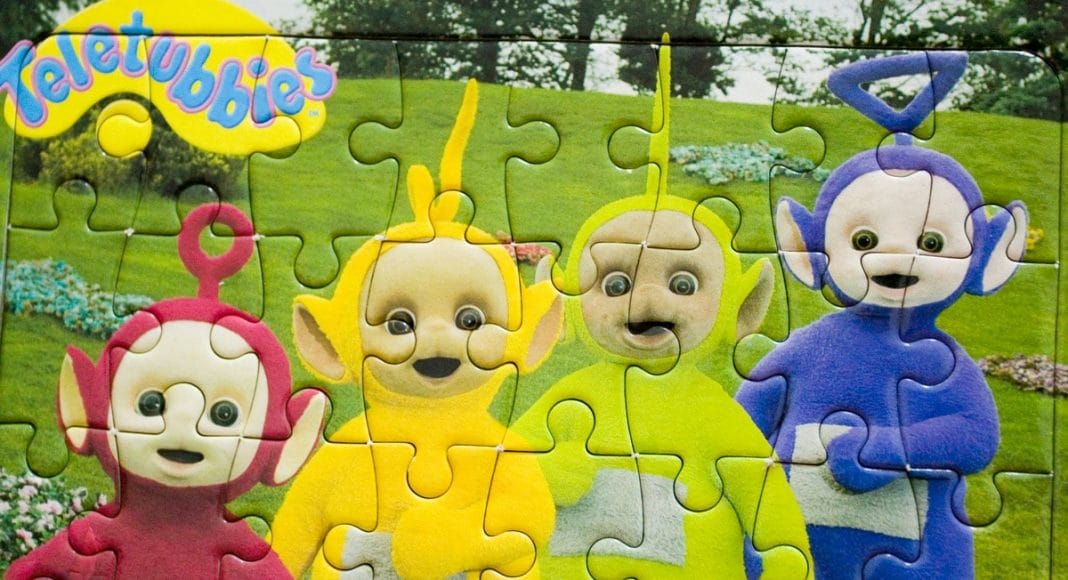You may have heard of gay Tinky Winky, a scandal that made it to our TV sets during the late ’90s when a reverend caught a glimpse of the purple Teletubbie carrying his large red purse.
Jerry Falwell, the reverend in question, helped turn the Teletubbies into a cultural phenomenon. He claimed that Tinky Winky was morally damaging for children, listing things that made the character “gay,” like his color, the fact that he carried a purse, and the shape of his antenna. At one point, Falwell and his views on the Teletubbies were so famous that he appeared on the “Today Show,” where he ranted about how bad it was that the show had “little boys running around with purses […] leaving the idea that the masculine male, the feminine female is out, and that gay is okay”
“He is purple – the gay-pride colour; and his antenna is shaped like a triangle – the gay-pride symbol.”
https://giphy.com/gifs/dance-friday-t-w8f9g2x44aGI
The reverend has a point; carrying a purse is pretty gay. His statements weren’t the first to allude to gay Tinky Winky, a problem that originated in England and that followed the show when it reached the US, where the character was dubbed “The New Ellen Degeneres.”
Controversy started early for the Teletubbies, who cast, and quickly fired, Dave Thompson as Tinky Winky. According to Prince Economics, he was fired for portraying the character in a way that was “too gay.” The actor was also known for causing a lot of problems on the set, one of them being his preference for “romping around naked” between takes, earning him the name “Kinky Winky.”
Simon Barnes was later cast as Tinky Winky, where he had to answer for his character. He always steered away from controversy, claiming that the Teletubbies were supposed to be children – very large children – and that questioning their sexuality was silly.
-
Related Story: 3 Little Words Disney Employees Are Never Allowed To Say
At the end of the day, it doesn’t really matter. The Teletubbies was a silly show that became like The Beatles for toddlers. It injected pop culture with a lot of strangeness, and even though the creators and producers probably never meant to create a gay icon, they did. And that’s great.


